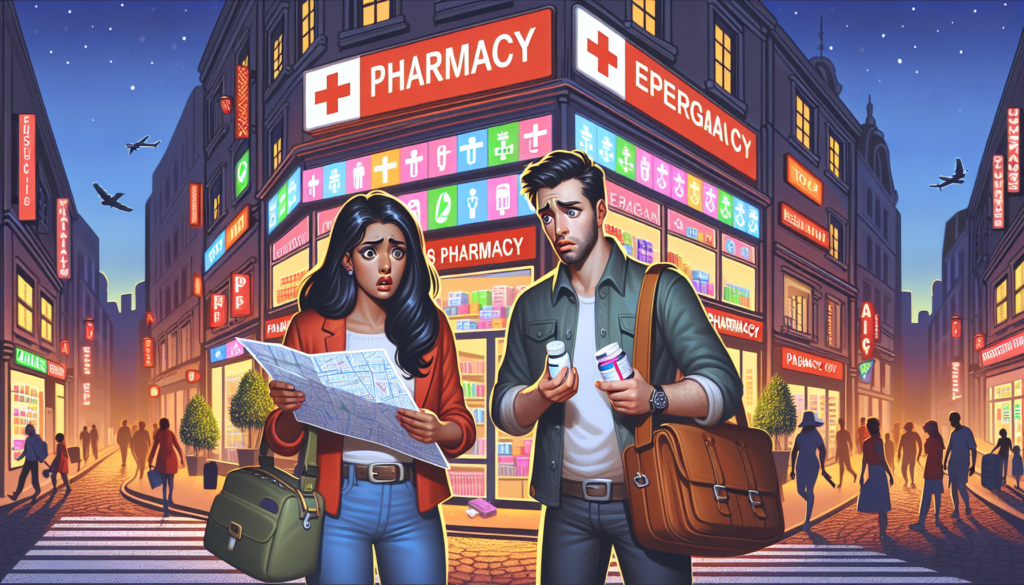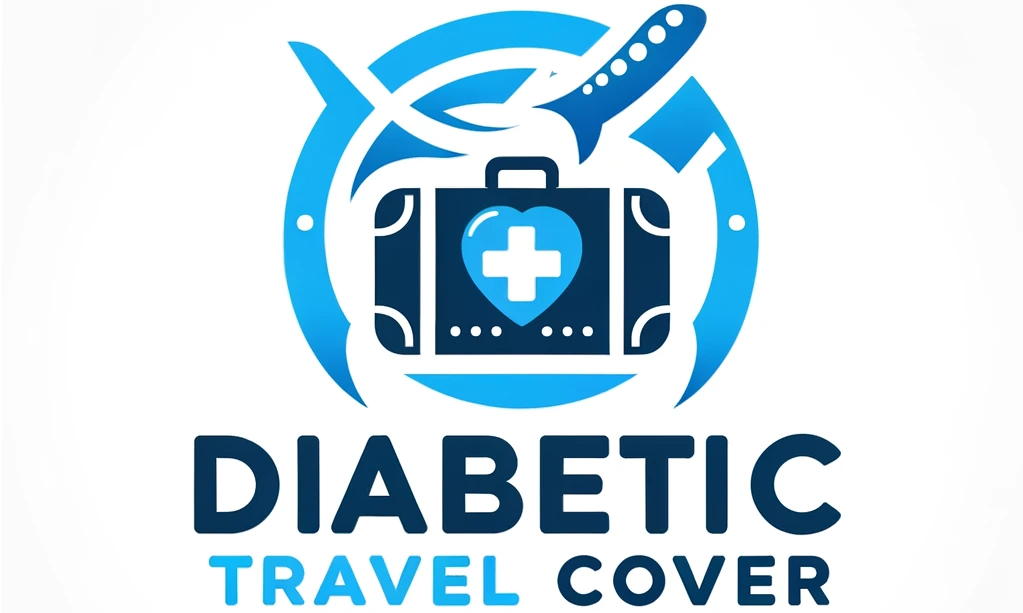Imagine this scenario: you’re on a fantastic vacation, exploring new places, trying delicious foods, and making precious memories. But suddenly, you realize that you’ve run out of your vital medication. Panic sets in as you think about the possible consequences. Don’t worry, we’ve got you covered! In this article, we will discuss some essential tips and practical steps to take if you find yourself in the unfortunate situation of running out of medication while traveling. So sit back, relax, and let’s ensure that your trip remains safe and enjoyable, no matter what obstacles come your way.
Understanding the Importance of Medication While Traveling
How does medication contribute to health management?
Medication plays a crucial role in managing various health conditions, and this is especially important while traveling. Whether you’re exploring a new destination or embarking on a long journey, medication helps ensure that your health conditions are well-controlled, allowing you to fully enjoy your travel experience. Medication can help manage chronic conditions such as diabetes, asthma, hypertension, and many others, preventing complications and promoting overall well-being. By consistently taking your prescribed medication, you are keeping your health on track even when away from home.
Why is medication essential during travels?
It is essential to continue taking your medication while traveling to maintain your health and prevent any unwanted health issues. Skipping doses or running out of medication can disrupt the balance your body needs to function properly. Traveling often involves a change in routine, exposure to different environments, and increased physical activity, all of which can potentially trigger symptoms or aggravate existing health conditions. By ensuring you have an adequate supply of medication, you are taking proactive steps to safeguard your health, allowing you to fully embrace your travel adventures.
Common Reasons for Running Out of Medication While Traveling
Miscalculation of travel duration
One common reason people run out of medication while traveling is the miscalculation of their travel duration. It’s easy to underestimate how long you’ll be away or overlook delays that might prolong your trip. To avoid this, it is crucial always to take into account potential disruptions, such as flight delays, traffic, or any last-minute changes to your itinerary. By overestimating your travel duration and ensuring you have an ample supply of medication, you can prevent the stress and potential health risks associated with running out of medication.
Unexpected extension of trip
Travel plans can change unexpectedly due to various reasons, and this can lead to an extension of your trip. It could be a spontaneous decision to extend your stay or any unforeseen circumstances beyond your control, such as flight cancellations or natural disasters. When faced with such situations, it is crucial to have a contingency plan in place to ensure you have enough medication to last through the extended period. By having backup supplies or additional prescriptions, you can confidently continue your journey without having to worry about running out of medication.
Loss or theft of medication
Another unfortunate circumstance that can leave you without medication while traveling is the loss or theft of your medication. Mishaps can happen, and losing your bag or having it stolen is a nightmare scenario. However, it’s important not to panic if such an incident occurs. You should always carry your medication in your carry-on baggage, ensuring it is easily accessible and safeguarded. Additionally, it is prudent to make copies of all your prescriptions and important medical documents, storing them separately from your medication. Having duplicates and backup strategies can help mitigate the consequences of losing or having your medication stolen, allowing you to focus on enjoying your trip with peace of mind.
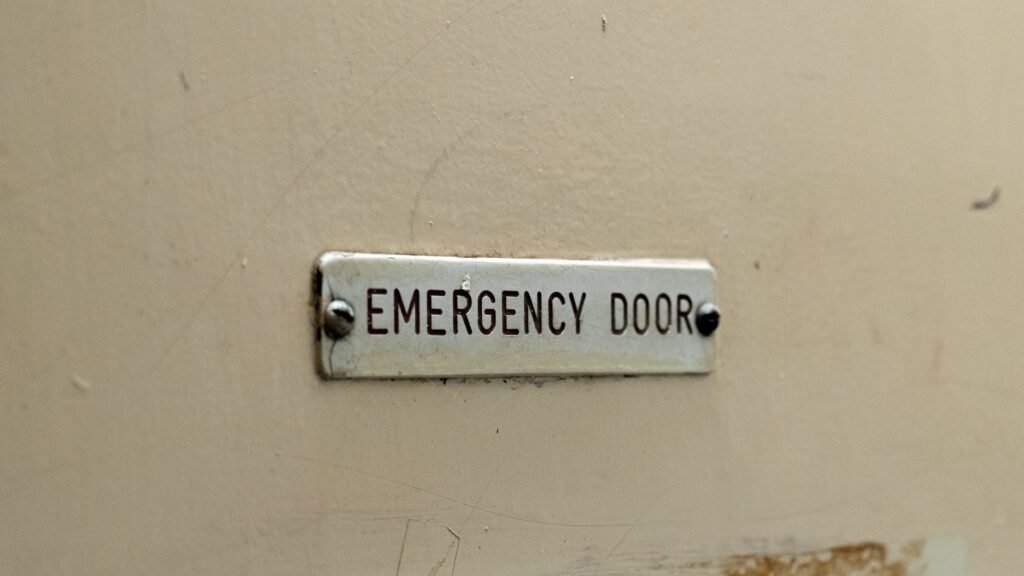
Pre-Travel Steps to Avoid Running Out of Medication
Proper medication planning
One of the most crucial pre-travel steps is proper medication planning. Start by reviewing the duration of your trip and the frequency of medication dosages. Make a detailed list of all the medications you need to take, including their generic and brand names, dosage, and instructions. Keep track of the number of doses you have remaining and estimate how many you’ll need for the entire trip. By carefully planning and organizing your medication, you can have a clear understanding of how much you should bring and avoid any surprises or shortages.
Consulting with a healthcare provider
Before embarking on your journey, it is highly recommended to consult with your healthcare provider or pharmacist. They can provide valuable advice and guidance tailored to your specific health needs. Discuss your travel plans with them, including your destination, activities, and any potential health risks. They can help assess your medication requirements and provide essential information on potential interactions, side effects, and additional precautions you may need to take while traveling. This consultation will ensure that you are fully prepared and well-informed regarding your medication needs while on the road.
Acquiring extra prescription in case of emergency
Having an extra prescription on hand can be a lifesaver in case of an emergency or unexpected circumstances. Consult with your healthcare provider to obtain an additional prescription for your essential medications. This extra prescription can be invaluable if you lose your medication, need to extend your trip, or encounter any unforeseen challenges that may disrupt your original plans. By having a backup prescription, you can confidently navigate any hurdles you may face during your travels, knowing that your health is prioritized and protected.
Understanding Travel Insurance and Prescription Medication
How does travel insurance cover prescription medication?
Travel insurance is an important consideration when it comes to having coverage for prescription medication while traveling. Different travel insurance providers offer varying degrees of coverage, so it is essential to carefully review the policy terms and conditions. Some travel insurance plans may cover the cost of prescription medication if it is lost, stolen, or misplaced during your trip. Additionally, certain policies might provide reimbursement for emergency purchases of medication or medical supplies. Ensure you understand the coverage limits, exclusions, and the process for making claims regarding your prescription medication.
Important considerations when choosing travel insurance
When selecting travel insurance, it is vital to consider your specific needs, including your health conditions and the medications you require. Look for policies that offer comprehensive medical coverage, including prescription medication. Review the policy coverage limits, deductibles, and exclusions related to pre-existing conditions. It is also essential to assess the reputation and reliability of the insurance provider. Read reviews, compare different plans, and consult with an insurance professional if needed to ensure you select the best travel insurance policy for your unique situation.

Visiting Local Pharmacies In Foreign Countries
Differences in medication names
When visiting local pharmacies in foreign countries, it is important to be aware that medication names may differ from those you are accustomed to. This is particularly true for brand names, as generic names often vary less. However, it is essential to have a good understanding of your medication’s generic name and dosage to navigate foreign pharmacies effectively. Consider carrying a translated list of your medications, including their generic names, to help facilitate communication with pharmacists in case of any confusion or language barriers.
Navigating foreign pharmacies
Navigating foreign pharmacies can sometimes be challenging due to language barriers or unfamiliar healthcare systems. To ensure a smooth experience, it is recommended to research in advance about the local healthcare and pharmacy systems at your destination. Look for reputable pharmacies and consider asking for recommendations from local residents or fellow travelers. Additionally, it is crucial to familiarize yourself with any regulations or requirements for purchasing medication in that specific country, such as the need for prescriptions or any restrictions on specific medications.
Potential issues and solutions
While visiting local pharmacies in foreign countries, you may encounter various potential issues, but there are solutions to overcome them. One common issue is the unavailability of a specific medication or brand. In such cases, pharmacists can often recommend alternative medications with similar effects. Similarly, language barriers can pose challenges in understanding medication instructions or interactions. Bringing a translation app or a basic phrasebook can help facilitate communication and ensure you receive clear instructions. If you encounter any difficulties, don’t hesitate to reach out to your healthcare provider via phone or email for guidance.
Communicating with Healthcare Providers Back Home
Contacting your usual healthcare provider
Staying connected with your usual healthcare provider back home is crucial while traveling. Ensure you have their contact information readily available, and inform them about your travel plans before departure. Should any medical concerns or emergencies arise during your trip, they can provide valuable advice and guidance. They can also address any questions or concerns you may have regarding your medication, potential side effects, or necessary precautions while traveling. Having open lines of communication with your healthcare provider ensures that you receive the support and care you need while away from home.
Arranging remote consultations
In some cases, it may be necessary to arrange remote consultations with your healthcare provider while traveling. Various telemedicine platforms and apps allow you to connect with healthcare professionals remotely, ensuring you can receive medical advice or prescriptions if needed. It is advisable to research and identify reliable telemedicine platforms in advance, understanding their availability, costs, and any technological requirements. With remote consultations, you can access medical expertise and prescriptions even if you are far away from your usual healthcare provider.
Getting emergency prescriptions
In situations where you run out of medication and cannot immediately access your usual healthcare provider, it is important to know how to obtain emergency prescriptions. Research the local healthcare system and the process for accessing emergency prescriptions or medical care. Some countries allow pharmacists to provide emergency medication supplies, while others may require a visit to a local healthcare facility. Understanding the options available to you will help you secure the necessary medication while navigating any unforeseen circumstances.
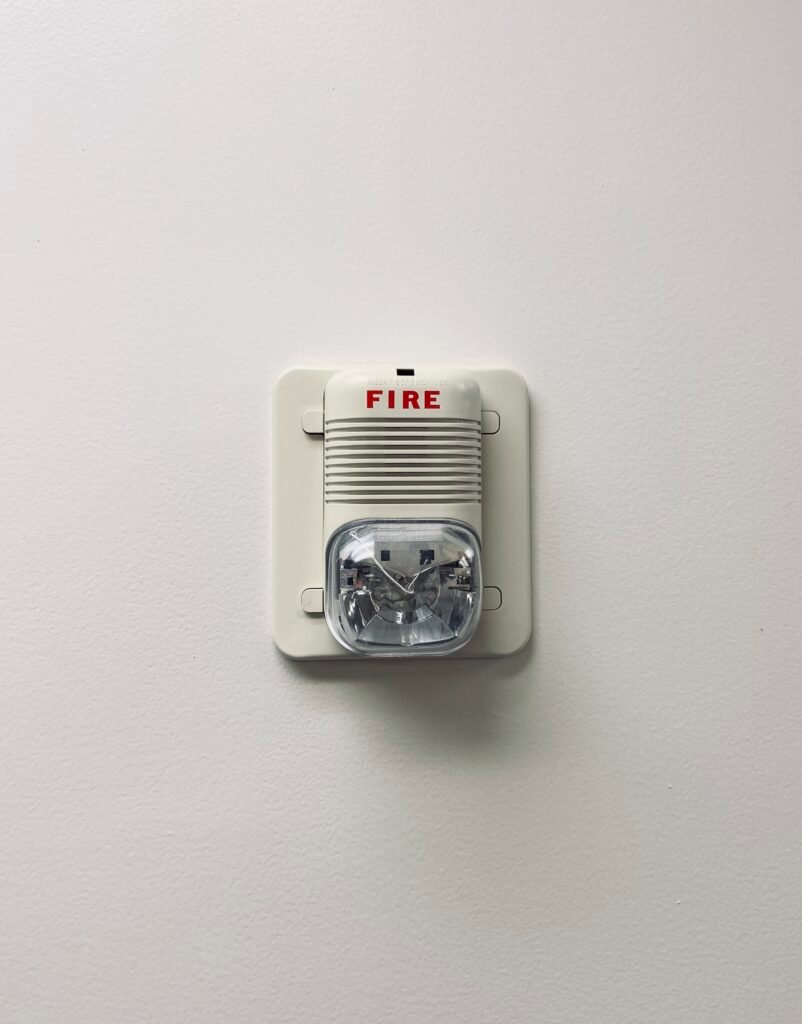
Alternative Options if Medication is Unavailable
Safe substitutes for common medications
In case your specific medication is unavailable while traveling, it is important to know that there might be safe substitutes available to manage your condition. Consult with local healthcare professionals or pharmacists who can recommend alternative medications with similar effects. It is vital to share your medical history and any allergies or sensitivities to ensure the prescribed alternatives are suitable for you. While the substitute medication may not be identical to your prescribed medication, it can still provide adequate relief and management for your health condition.
How to cope when substitute medication is also unavailable
There might be instances when even substitute medications are unavailable in certain locations. In such situations, it can be unnerving, but there are coping mechanisms to help you manage. Firstly, try to stay calm and maintain a positive mindset. Reach out to local healthcare professionals, who may have additional insights or solutions. Consider contacting your usual healthcare provider back home to seek their guidance and explore alternative options. In severe cases, where access to essential medication is not possible, it may be necessary to consider altering or discontinuing travel plans to prioritize your health.
When to seek medical attention
If you find yourself in a situation where you have exhausted all possible options and cannot secure necessary medication, it is crucial to know when to seek medical attention. If your health condition worsens significantly or if you experience severe symptoms, it is important to immediately seek medical care. Look for local healthcare facilities, hospitals, or clinics where professionals can assess your condition and provide appropriate medical intervention. Your well-being should always be the top priority, and seeking timely medical attention is paramount when faced with medication shortages.
Dealing with Customs and Import Regulations
Understanding international regulations on medication import
When traveling with medication, it is vital to be familiar with international regulations regarding medication import. Different countries have varying rules and restrictions, and some medications that are legal in one country may be prohibited in another. Research the specific regulations of your destination country, focusing on the medications you are carrying. Find out if you need to obtain any permits or carry certain documents, such as prescriptions or medical certificates. Being well-informed about import regulations will help you avoid any legal issues or delays at customs.
Steps to take if your medication is seized at customs
Despite your best efforts to comply with international regulations, there may be instances when your medication is seized at customs. If this happens, it is important to remain calm and cooperative. Try to understand the reason for the seizure and inquire about possible solutions or alternatives suggested by customs officials. In some cases, providing additional documentation or obtaining a local prescription may help resolve the situation. If facing difficulties, consider seeking assistance from your embassy or consulate, who can provide guidance and support to navigate any challenges associated with customs procedures.
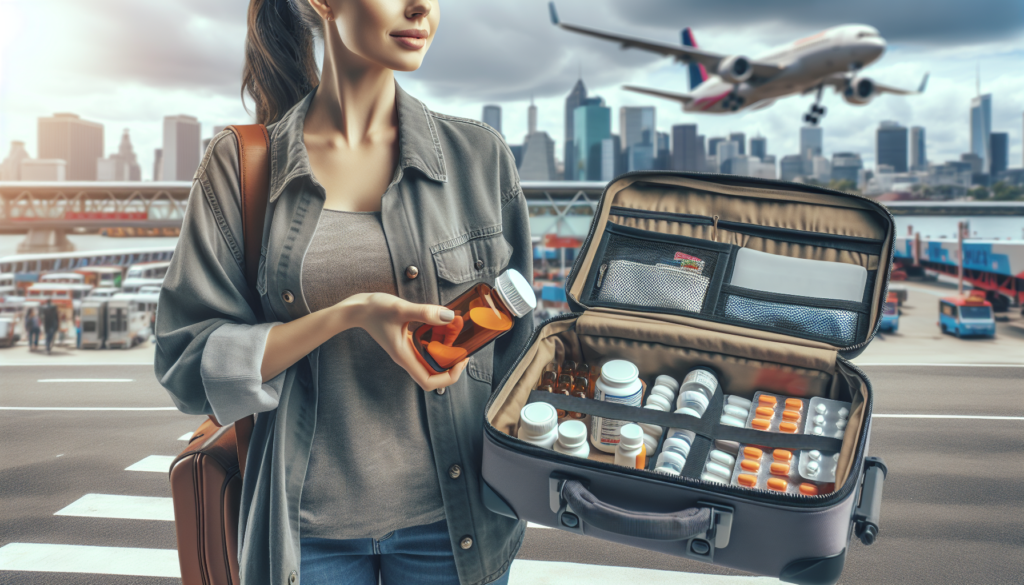
Steps to Prevent Medication Loss or Theft during Travel
Proper storage of medication
Properly storing your medication is essential to prevent loss or theft during travel. Always carry your medication in your carry-on baggage, never in your checked luggage, to ensure it remains with you at all times. Keep medications in their original packaging with clearly labeled bottles or blister packs. Additionally, consider using a pill organizer or medication pouch to keep your medication organized and easily accessible. Proper storage reduces the risk of misplacing or losing your medication and allows you to promptly address any potential issues.
Carrying backup supplies
To be prepared for unexpected situations, it is advisable to carry backup supplies of your essential medications. Pack an extra set of medications in a separate bag or container, ensuring it is easily accessible. This backup supply will provide an additional safety net in case your original medication is lost, stolen, or inadvertently damaged. Additionally, consider splitting your medication between different bags or compartments to minimize the impact of potential theft or loss of your belongings.
Reporting loss or theft promptly
In the unfortunate event of medication loss or theft, it is crucial to report it promptly to the relevant authorities or officials. Contact local law enforcement to inform them about the incident and provide them with all the necessary details. Reporting the loss or theft serves two purposes: it helps you create an official record for insurance purposes and can aid in potential recovery efforts. Additionally, notifying your healthcare provider back home ensures that they are aware of the situation and can provide any necessary guidance or assistance.
Mental and Emotional Management during Medication Shortage
Coping mechanisms during stressful situations
Experiencing a medication shortage while traveling can be a stressful and challenging situation. During such times, it is important to employ coping mechanisms to alleviate stress and anxiety. Engaging in relaxation techniques, such as deep breathing exercises or mindfulness meditation, can help calm your nerves and refocus your mind. Maintain a positive mindset, reminding yourself that there are often alternative solutions available and that your health is paramount. Lean on the support of your travel companions, loved ones back home, or fellow travelers who may provide encouragement and reassurance.
Communication with loved ones back home
Staying connected with loved ones back home can be a tremendous source of emotional support during a medication shortage while traveling. Share your concerns, fears, and frustrations with them, as they can offer a listening ear and provide comforting advice. Regularly updating them on your situation allows them to understand your needs and provide any necessary assistance or guidance. Their emotional support and encouragement can help alleviate anxiety and make your experience more manageable.
Seeking emotional support from locals or fellow travelers
Locals or fellow travelers can provide valuable emotional support during challenging times. Reach out to local community groups, expat networks, or online travel communities that can offer advice, recommendations, and reassurance. Engaging with like-minded individuals who may have encountered similar situations can provide a sense of solidarity and understanding. Sharing experiences and learning from others can contribute to a more positive and empowered mindset when facing a medication shortage while traveling.
In conclusion, understanding the importance of medication while traveling is crucial for the overall management of health. By taking proactive steps to avoid running out of medication, such as proper planning, consulting healthcare providers, and having backup supplies, you can ensure that your health is well-maintained during your travel adventures. Navigating local pharmacies in foreign countries, staying connected with your usual healthcare provider, and being aware of international regulations help address any medication-related challenges that may arise. Equipped with knowledge, preparedness, and support, you can confidently embark on your travels, knowing that your health is a top priority. Remember to always prioritize your well-being, seek guidance when needed, and make the most of your travel experiences while staying on top of your medication needs.
